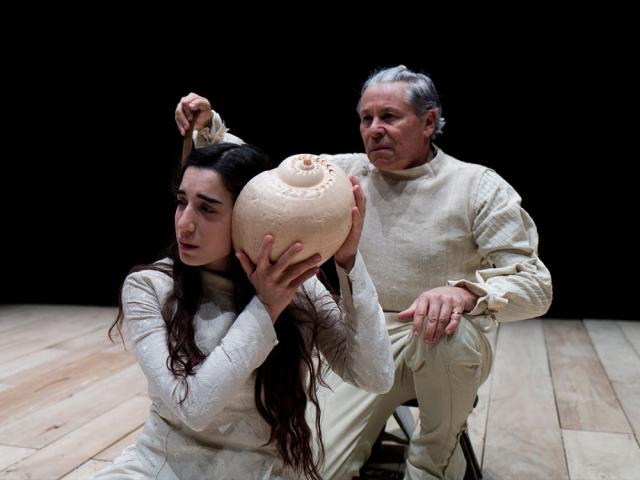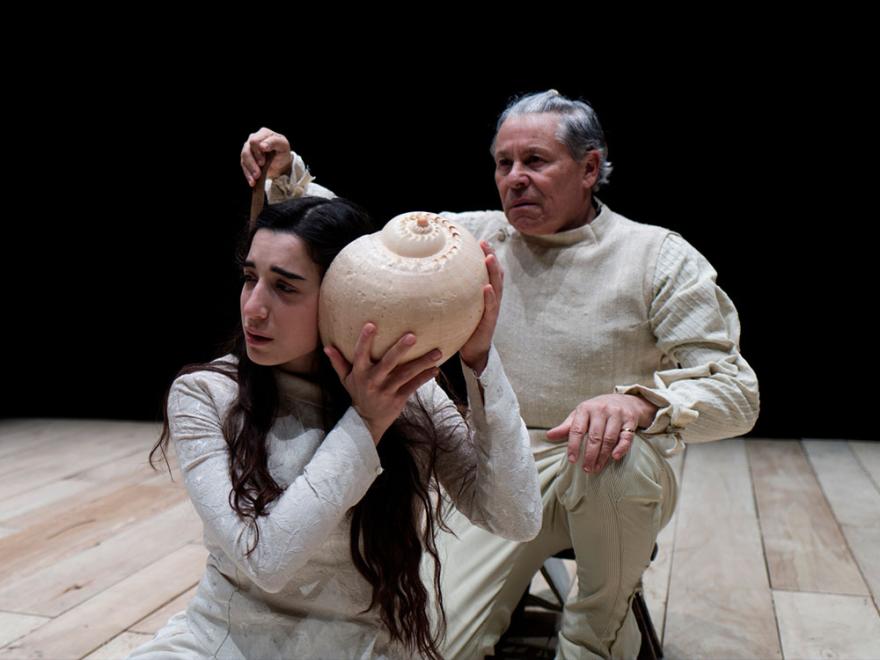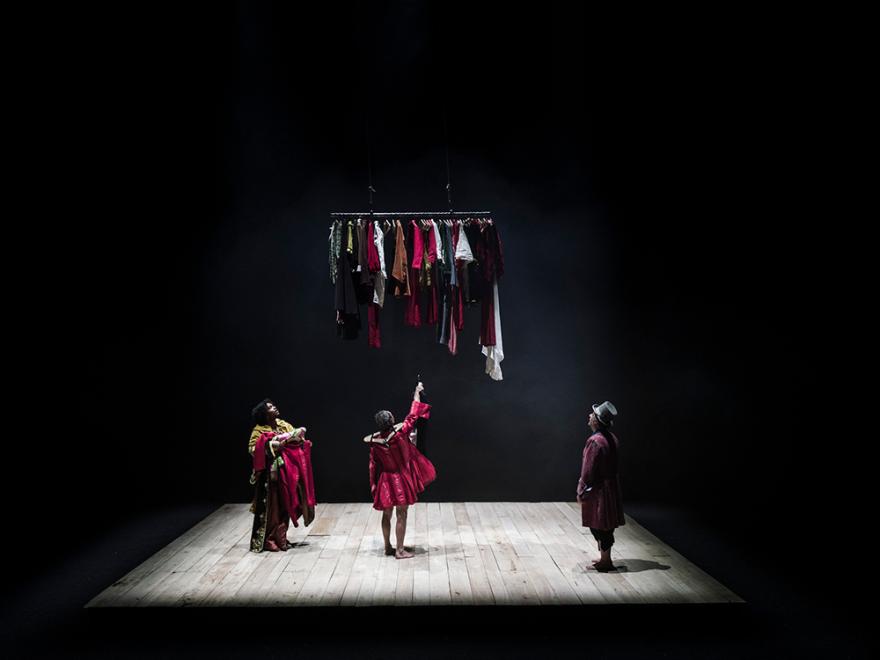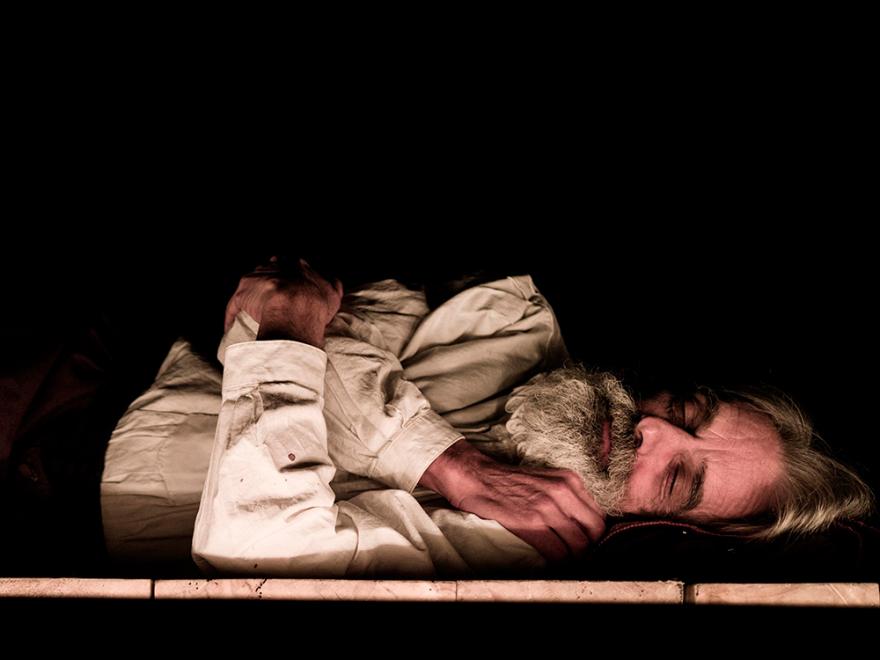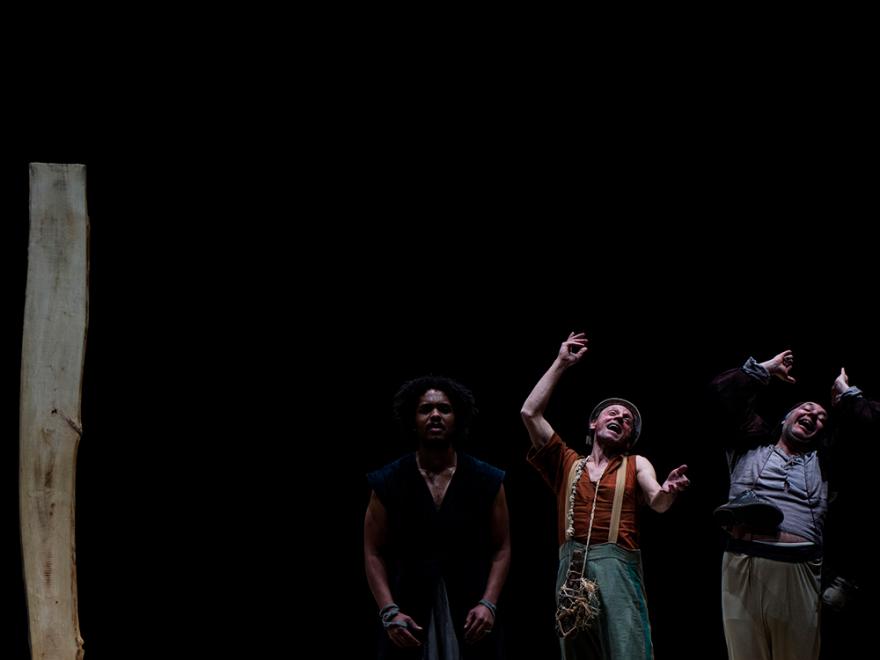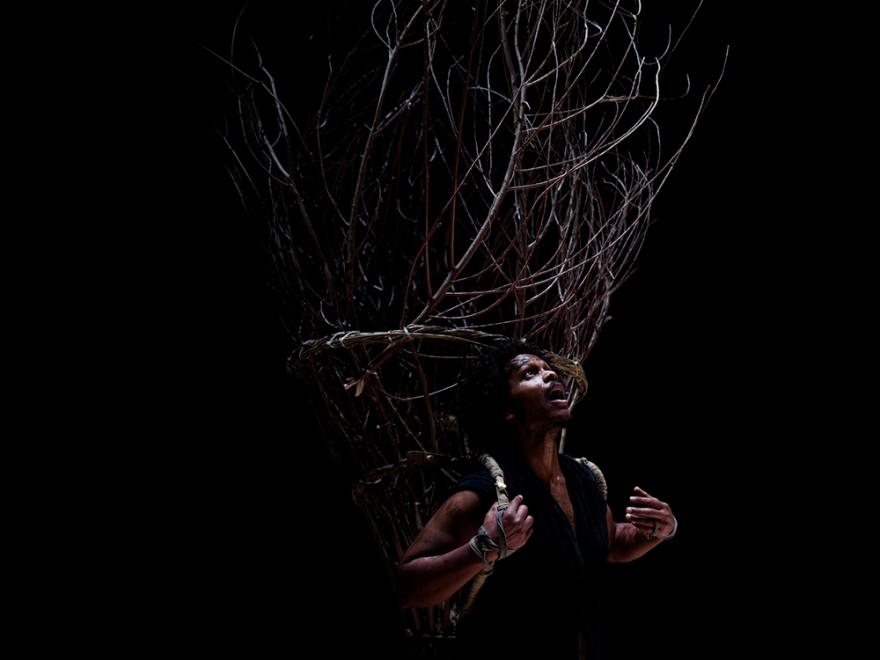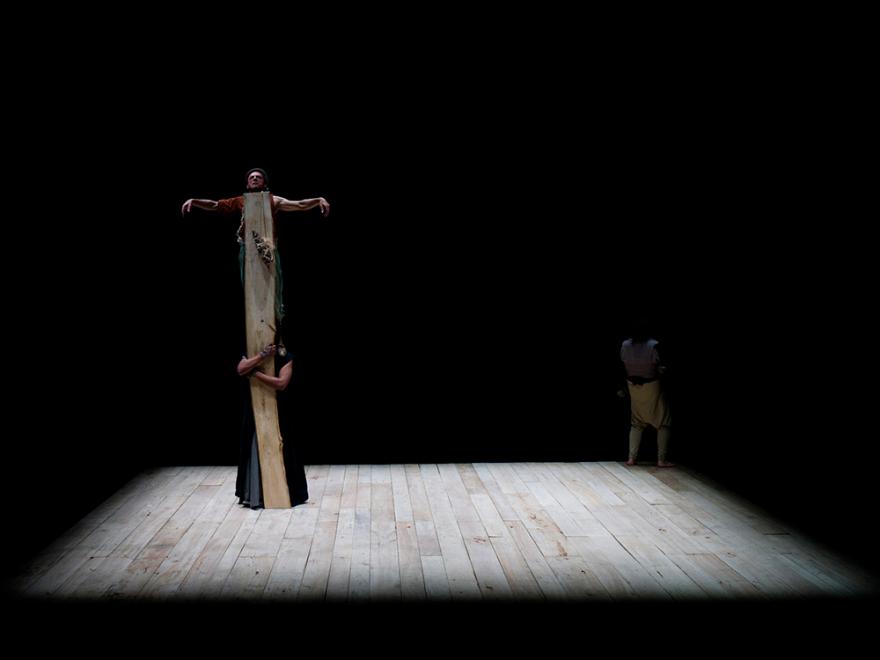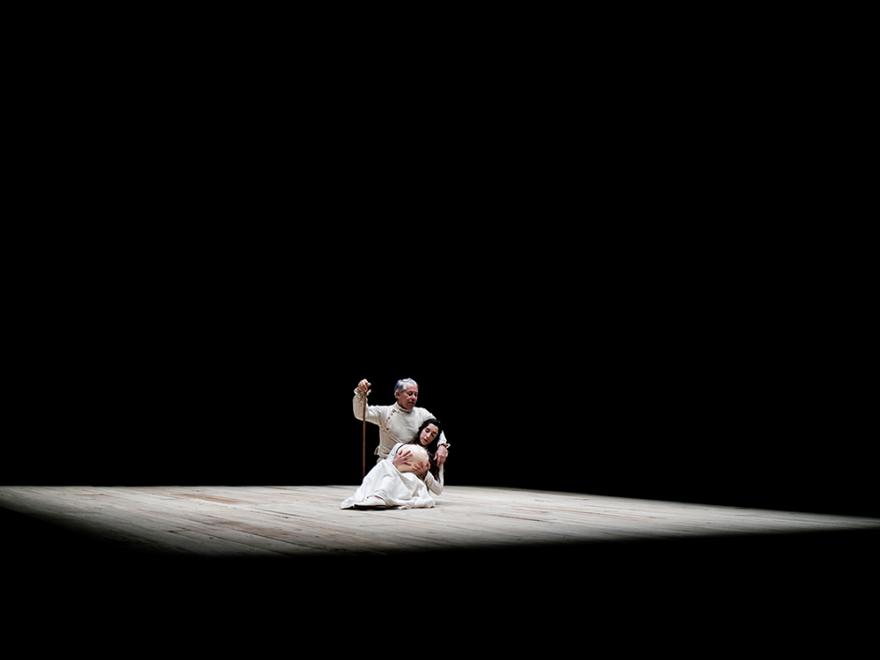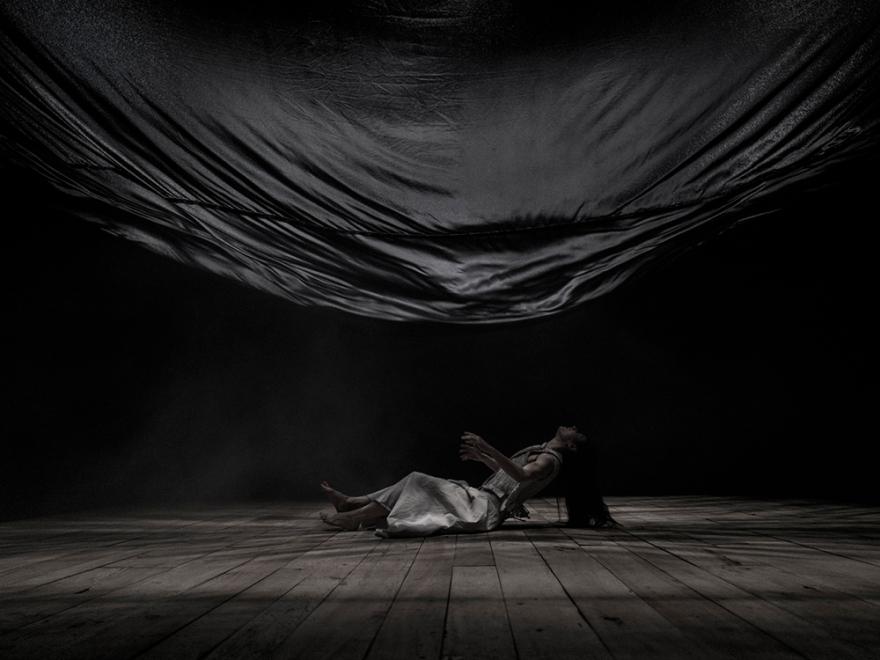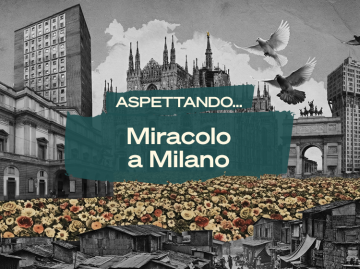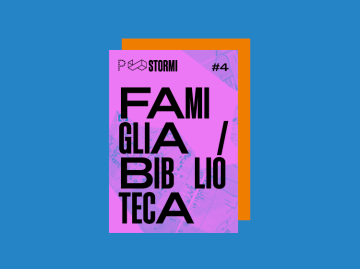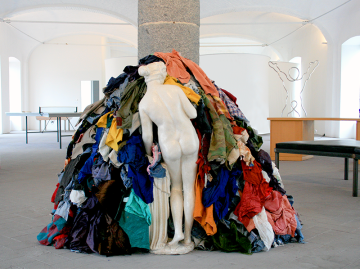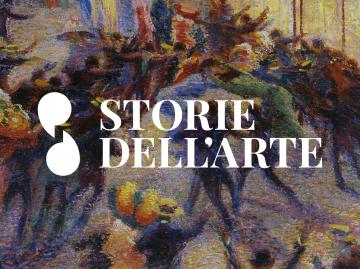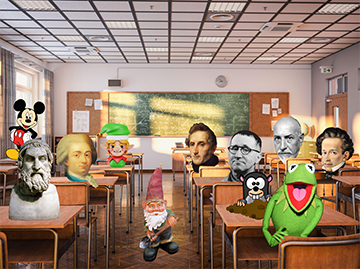A remote island in the Mediterranean, a father who uses magic to try and recover his lost dukedom, a daughter who has never seen another human apart from him, a spirit of the air, a disfigured monster... Alessandro Serra stages William Shakespeare’s masterpiece.
Alessandro Serra returns to the Bard, telling Antonio Moresco: “In The Tempest, the supernatural serves humankind, Prospero is devoid of transcendence, yet his crude magic imprisons the spirits of nature, summons storms, and brings the dead back to life. Yet it is Ariel, an air spirit, who teaches him the power of compassion and of forgiving. On this island-stage, everyone asks for forgiveness, and everyone repents, except for Antonio and Sebastiano, who are the only ones to be immune to the beauty and the feeling of ecstasy that pervades the others. The fact that Prospero foregoes revenge at the very moment that he has his enemies at his feet is an expression of his true spiritual ascension; the supernatural comes when Prospero renounces it, refuses to use it as a weapon. Yet – Shakespeare seems to tell us – the supreme power is the power of Theatre. The Tempest is a celebration of theatre through theatre, the magic of which lies in this unique and unrepeatable opportunity to explore metaphysical dimensions through the roguery of a company of actors who stand on a few planks of wood, with a scattering of props and a pile of patched-up costumes”.
However, even in Shakespeare’s masterpiece, power plays a central role: “When I began to translate the script, and rewrite it in Italian, I realised the astounding political strength of the play, which currently seems more topical than ever, because war is always an act of fratricide. This land is mine! I was here first! Palestine, Ukraine, the whole world, every border, the fence surrounding our own home... Prospero’s island is the world, an endless yet miniscule space surrounded by a Mediterranean, still full of corpses, which everyone wants to conquer, possess, and destroy”.
Duration: 105’ without interval
Learn more
Booklet
ReadAlessandro Serra returns to the Bard, telling Antonio Moresco: “In The Tempest, the supernatural serves humankind, Prospero is devoid of transcendence, yet his crude magic imprisons the spirits of nature, summons storms, and brings the dead back to life. Yet it is Ariel, an air spirit, who teaches him the power of compassion and of forgiving. On this island-stage, everyone asks for forgiveness, and everyone repents, except for Antonio and Sebastiano, who are the only ones to be immune to the beauty and the feeling of ecstasy that pervades the others. The fact that Prospero foregoes revenge at the very moment that he has his enemies at his feet is an expression of his true spiritual ascension; the supernatural comes when Prospero renounces it, refuses to use it as a weapon. Yet – Shakespeare seems to tell us – the supreme power is the power of Theatre. The Tempest is a celebration of theatre through theatre, the magic of which lies in this unique and unrepeatable opportunity to explore metaphysical dimensions through the roguery of a company of actors who stand on a few planks of wood, with a scattering of props and a pile of patched-up costumes”.
However, even in Shakespeare’s masterpiece, power plays a central role: “When I began to translate the script, and rewrite it in Italian, I realised the astounding political strength of the play, which currently seems more topical than ever, because war is always an act of fratricide. This land is mine! I was here first! Palestine, Ukraine, the whole world, every border, the fence surrounding our own home... Prospero’s island is the world, an endless yet miniscule space surrounded by a Mediterranean, still full of corpses, which everyone wants to conquer, possess, and destroy”.
Duration: 105’ without interval
Learn more
Booklet
ReadMeetings and insights
Credits
a Teatro Stabile di Torino – Teatro Nazionale / Teatro di Roma – Teatro Nazionale / Emilia Romagna Teatro ERT – Teatro Nazionale / Sardegna Teatro / Festival d’Avignon / MA scène nationale – Pays de Montbéliard production
Tickets
Category of performance Hosted Shows
Stalls full price € 33 | Discounted (under 26 and over 65) € 21
Balcony full price € 26 | Discounted (under 26 and over 65) € 18
Subscriptions
The performance is available for subscription holders
To purchase a subscription online, click here
How and where to purchase
For information, click here
COVID-19
Read the guidelines
Organised groups and audiences
For information on tickets for organised groups:
tel. +39 02 72 333 216
email promozione.pubblico@piccoloteatromilano.it
